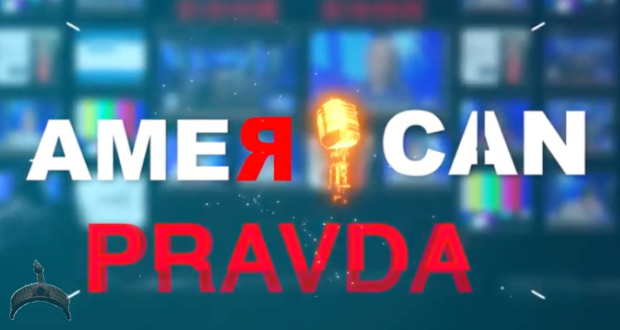In early 2011 we were contacted by Wick Allison, who introduced himself as the successful semi-retired publisher of D Magazine, billing itself as Dallas’ leading local guide to restaurants and nightlife. Allison had worked at National Review a quarter-century earlier and TAC was brought to his attention by his daughter, a recent college graduate then working as an intern at The New Republic. He told us he was close to TAC’s political positions, especially on foreign policy, and offered to become our CEO on a part-time, volunteer basis, providing the publishing expertise and fund-raising skills we needed to expand beyond our existing small-circulation niche.
Six months earlier I had converted TAC into a non-profit in hopes of obtaining outside financial support, and although some had come in, the donations were hardly enough to keep the publication going. Around the same time, we had suffered the severe loss of Editor Kara Hopkins, the shaping force behind each issue, who had been lured away by the U.S. government, thereby elevating her subordinate McCarthy to the top editorial slot. Since neither I nor any of the other board members were in a position to provide the time and effort to fill such an executive role and TAC’s tiny surviving staff was agreeable, Allison’s offer was readily accepted.
After some initial slow-going, he soon seemed to hit his stride and during a three month period, he raised several times more external funding than TAC’s entire total for the previous year, validating our hopes. Part of this support was earmarked to hire Rod Dreher, a popular blogger whose themes often related to Christianity; this represented something of a departure for TAC, which had never previously touched much on religious topics.
With Dreher’s personal following providing a major boost to TAC’s website traffic and early fundraising having gone so extremely well, Allison emphasized the need to build up TAC operations to the point where we could attract a multi-million-dollar capital infusion. Although a few of us had quiet misgivings about taking on these large additional expenses, months of highly successful fundraising made our doubts seem unreasonable.
Part-time and full-time staff and bloggers were steadily added to the payroll, and some salaries were sharply increased. The compensation of TAC’s business manager was tripled. Allison’s daughter went straight from an Andrew Sullivan internship to being TAC’s second highest paid editorial employee. The salary of one of TAC’s longtime bloggers was increased seven-fold, although his readership in mid-2012 was roughly the same as it had been in 2010 or 2011. During the course of about one year, TAC’s full-time editorial and business staff grew from two or three to a total of seven, while the number of its regular bloggers rose from one to four. I also later discovered that TAC seemed to be paying most of these bloggers five to ten times the going market rate relative to the traffic they generated. Hiring staff and raising salaries inevitably follows the Ratchet Principle: easy to increase but very painful and difficult to later cut. According to public IRS Form 990s, TAC’s operational expenses grew by two-thirds between 2010 and 2012, greatly increasing the burden of meeting every monthly payroll.
And unfortunately that early burst of large donations was never again matched, with top prospect after top prospect either turning Allison down or providing just a small fraction of the support he requested, while a direct mail appeal proved extremely unsuccessful. But TAC now needed to regularly obtain large donations just to survive. On a number of occasions, I had to write a sizable check to keep TAC’s lights on, and I became increasingly doubtful about the publication’s future, deciding that it had had a good run while it lasted.
In late 2012, Allison urgently sought an immediate $60,000 donation from me to bridge the financial gap until one of his strongest prospects came through. Then two weeks after I had sent my check he left me a phone message saying that TAC was totally out of funds, and therefore would be laying off its entire staff and shutting down. At that point I decided I had done all I could.
But as it happened, my 30,000 word article The Myth of American Meritocracy had just been published in what was scheduled to be TAC’s final issue, and the piece began creating quite a stir in the media, with David Brooks ranking it as among America’s best magazine articles for the year and The New York Times organizing a symposium on the college admissions questions it raised. On a more practical level, the thirty days that followed brought in as large a total of new donations as had arrived during the preceding nine months, together with an even greater sum in firm future commitments. After reaching the brink of extinction, TAC was now granted a second chance to achieve solid financial footing.
Such mundane financial difficulties experienced by a small business that over-expands are hardly of any interest to the outside world. But during 2012 and 2013 they probably had an increasingly pernicious impact upon the sort of articles TAC published, which constituted the sole reason for its existence.
A single example illustrates the problem. In late August 2012 TAC published “Revolt of the Rich” an outstanding critique of our corrupt economic policies written by a former longtime Republican Congressional staffer, and the piece quickly became the most successful in TAC history, generating enormous readership and attracting a great deal of attention. But when Allison soon afterward sought urgent funds from one of TAC’s larger donors, his request was angrily rejected on the grounds that the publication had begun promoting “class warfare.” We never received another dollar from that former contributor.
I learned of this unfortunate incident by chance, and I am sure there were many others as well, with various past or prospective donors complaining about particular TAC articles and writers whose material challenged their comfort zone. Few wealthy individuals do much independent thinking on ideology or policy so they tend to merely echo the views of the prominent Democratic and Republican pundits they follow in the mainstream media. TAC probably came under pressure to achieve greater respectability by doing the same.
For whatever reason, I began noticing over the last year or two that more and more of the bold voices whom I had first encountered at TAC no longer seemed to appear, and their places had been taking by establishmentarian commentary, much of which seemed to come from far down in the slush-pile of ordinary submissions to the op-ed pages of major American newspapers. I had often sharply disagreed with much of TAC’s material in the past, but had always found it interesting; now I encountered far fewer such disagreements, but the articles seemed dull and safely mainstream.
The growing desire of TAC to become a political “player” in DC circles was also problematic. Jack Hunter—a.k.a. “the Southern Avenger”—had gone from being a regular TAC columnist to becoming a senior staffer to newly elected Sen. Rand Paul, and with growing talk of Paul considering a possible 2016 presidential bid, Hunter apparently became a powerful influence at TAC, resulting in a great deal of Rand Paul boosterism. I also later learned that TAC had begun regularly rejecting articles critical of Rand Paul or his father Ron Paul, even if the material was original and important and might have gained TAC greater visibility in the larger media landscape.
Another factor that may have led TAC astray was its discovery that adopting “liberal” ideological positions tended to attract enormous temporary traffic. Articles endorsing Gay Marriage or advocating gun control drew huge attention from liberal outlets and pundits, eager to spread the word that “even Pat Buchanan’s rightwing magazine” now supported their position. The problem was that the liberal readers who arrived to read those articles gradually realized that TAC wasn’t all that liberal a website and soon departed, while much of TAC’s conservative readership was permanently driven away by such material. “Man Bites Dog” articles only gain attention a few times before they become passé.
This development also had an unfortunate impact upon the TAC’s influence on national security matters. As TAC increasingly rejected or avoided most hot-button conservative issues, fewer and fewer people continued to regard it as “conservative” in any meaningful sense, so TAC’s strong stance on American foreign wars or civil liberties concerns became no different from that of so many other liberal, moderate, or libertarian publications. Its unique value as a dissenting conservative voice was lost.
Certainly none of these venal sins were any worse than those regularly committed by so many other media outlets, but the only advantages enjoyed by a tiny publication such as TAC had been its journalistic integrity and its willingness to ignore the boundaries of respectable punditry and establishment media opinion. Former Bush speechwriter David Frum had famously issued a 2003 fatwa excommunicating all the “unpatriotic conservatives” aligned with TAC for their strong opposition to the Iraq War, but by late 2012 he was praising TAC for finally having become a responsible media outlet, which may or may not have been much of a compliment.
For years TAC had occupied an almost vacant media niche, but once so many of its articles began falling safely within the boundaries of mainstream media opinion, it began competing against dozens of other publications offering similar commentary on the Internet, many of them backed by vastly greater resources and featuring far more prominent writers. Dreher’s Christianity-tinged punditry remained hugely popular, but between November 2012 and June 2013 the remainder of TAC’s content traffic dropped by almost 60%, although no comparable post-election decline seemed to occur at some other political websites. Why would people read TAC if they had already read something similar in their morning newspapers?
As TAC’s publisher and largest donor, my own articles had mostly remained immune from these growing restrictions, which is why it took me so long to discover they were being implemented. Although none of my writings had ever neatly fit into TAC’s original rightwing Buchananite ideology, I also doubt that most of them could have appeared in a mainstream media outlet in anything like their existing form, and that probably contributed to their considerable success. During the past two years, I had published four TAC cover stories, and these had been ranked #1, #2, #3, and #5 in total readership, averaging more than eight times the traffic of TAC’s other cover pieces. Taking risks is the only way a tiny publication can have any impact, but the desperate fear of alienating possible donors forced TAC to move in exactly the opposite direction.
At the end of April, my “American Pravda” article critiquing our dishonest national media was scheduled to run as the cover, with the artwork having already been produced. But just before the issue closed, Allison demanded that it be replaced, arguing that the focus on old news was unlikely to attract much interest and the harsh criticism of The New York Times seemed totally unreasonable; I strongly suspect he actually feared that my controversial claims would scare off timorous donors. After a heated argument, I finally acquiesced, and the piece nonetheless quickly became my second most successful ever, attracting almost twenty-five times the readership of the bland hagiography of Ronald Reagan’s foreign policy that replaced it on the cover. That incident was how I discovered that so many other TAC writers had previously encountered similar problems.
 Ọmọ Oòduà Naija Gist | News From Nigeria | Entertainment gist Nigeria|Networking|News.. Visit for Nigeria breaking news , Nigerian Movies , Naija music , Jobs In Nigeria , Naija News , Nollywood, Gist and more
Ọmọ Oòduà Naija Gist | News From Nigeria | Entertainment gist Nigeria|Networking|News.. Visit for Nigeria breaking news , Nigerian Movies , Naija music , Jobs In Nigeria , Naija News , Nollywood, Gist and more









